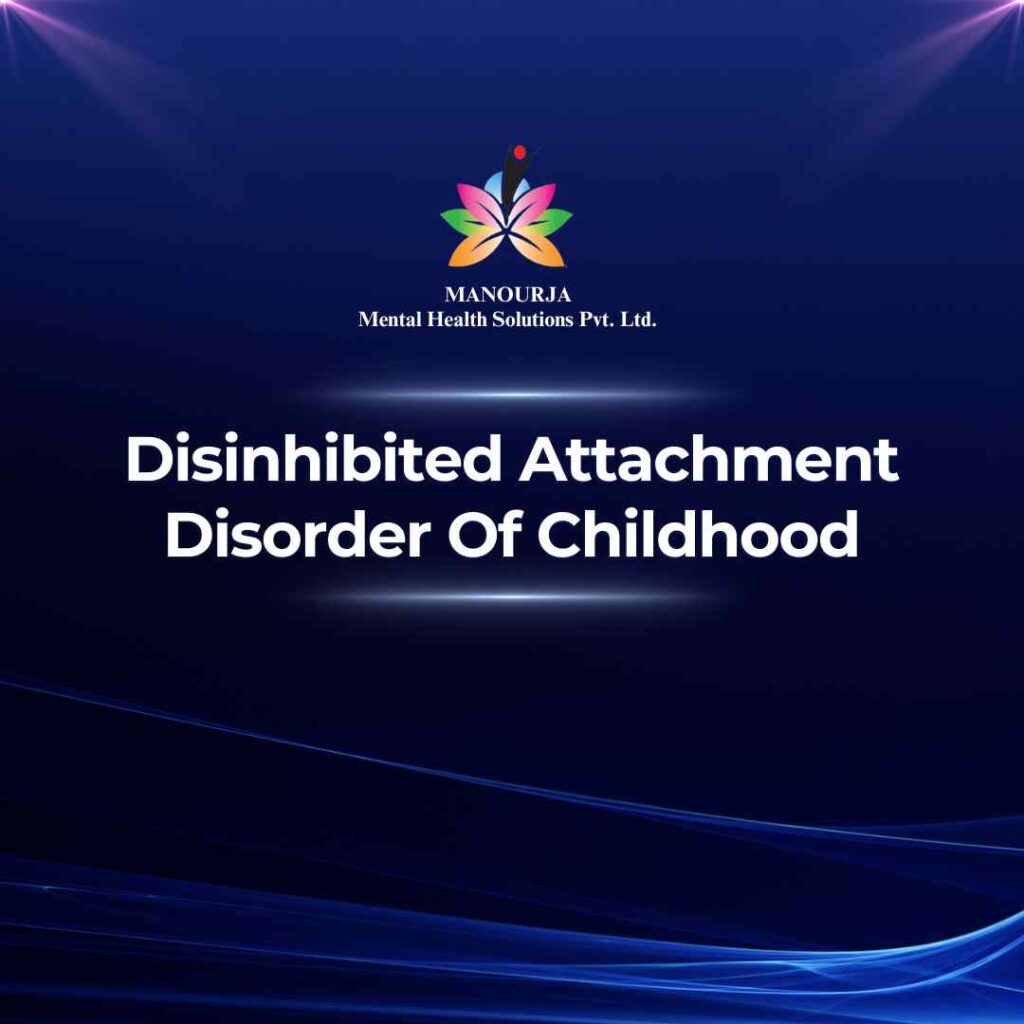Disinhibited Attachment Disorder of Childhood

Disinhibited Attachment Disorder of Childhood, formally known as Disinhibited Social Engagement Disorder (DSED), is a condition arising from a lack of consistent caregiving during early childhood. It is characterized by a child’s inappropriate and overly familiar behavior with relatively unfamiliar adults. This disorder typically develops due to severe social neglect, inadequate care, or frequent changes in caregivers, leading to an inability to form secure attachments.
Symptoms of Disinhibited Attachment Disorder
- Indiscriminate Familiarity: Children with this disorder do not show the usual hesitation seen in young children when interacting with strangers. They may approach and interact with unfamiliar adults in a way that is unusually friendly or even violate social boundaries.
- Attention-seeking Behavior: These children often exhibit attention-seeking behaviors, such as excessive clinging, touching, or verbal engagement with strangers or new acquaintances.
- Lack of Retreating to Caregivers: In stressful situations, children with DSED may not seek comfort from their primary caregivers, showing a preference instead to engage with any available adult.
- Absence of Shyness: Unlike their peers, children with DSED may not display typical signs of shyness or cautiousness around strangers.
Forms of Disinhibited Attachment Disorder
There is primarily one form of this disorder, which involves the child displaying overly familiar and boundary-violating behaviors as described above. However, the severity and specific manifestations of these behaviors can vary from child to child based on their individual experiences and the nature of their early attachments (or lack thereof).
Treatment of Disinhibited Attachment Disorder
Treatment strategies for DSED focus on creating stable and secure attachment experiences and managing behaviors. Effective treatment often involves a combination of therapeutic interventions and parenting strategies:
- Stable Caregiving Environment: Providing a stable, emotionally supportive caregiving environment is crucial. Children need consistent relationships with caregivers who are responsive and sensitive to their needs.
- Behavioral Therapy: This may involve teaching the child appropriate social boundaries and helping them understand safe versus unsafe ways of interacting with adults. Behavior strategies might also focus on reinforcing appropriate behaviors and gently discouraging inappropriate ones.
- Parent Training: Educating and training caregivers on how to provide effective, nurturing care is essential. Caregivers need to understand the child’s behaviors and learn how to respond in ways that build secure attachments.
- Psychotherapy: Therapy can help children develop a healthier attachment style and manage the emotional difficulties associated with their past experiences of neglect or unstable caregiving.
- School-based Interventions: Collaboration with school staff to ensure a consistent approach across settings can help reinforce the child’s treatment. Schools can provide additional support and monitoring to ensure the child is engaging appropriately with peers and adults.
- Family Therapy: This can help the entire family understand the disorder and improve their interactions with the child, fostering an environment that supports healthy attachment behaviors.
Children with Disinhibited Attachment Disorder require consistent, nurturing interactions within a stable environment to help them learn secure ways of forming relationships. Early and effective intervention offers the best chances for improving outcomes and helping the child develop healthier social interactions and attachments.
At MANOURJA, we believe in the transformative power of counseling. Our experienced therapists offer a safe and supportive space where you can explore your thoughts, emotions, and challenges. Through personalized counselling sessions, we’ll work together to develop coping strategies, build resilience, and achieve lasting positive change. Discover the path to a healthier, happier you with MANOURJA counselling services.
MANOURJA Rehabilitation Services
At MANOURJA, we’re dedicated to helping you in rebuild your life, after difficult times. Our rehabilitation services focus on understanding what you need to move forward, whether you’re recovering from addiction, trauma, or any psychological – social challenges. We create personalized plans, that are all about helping you, regain your strength and find hope again. With a caring team by your side, you’ll have the support to make real progress and take steps toward a brighter, healthier future.
